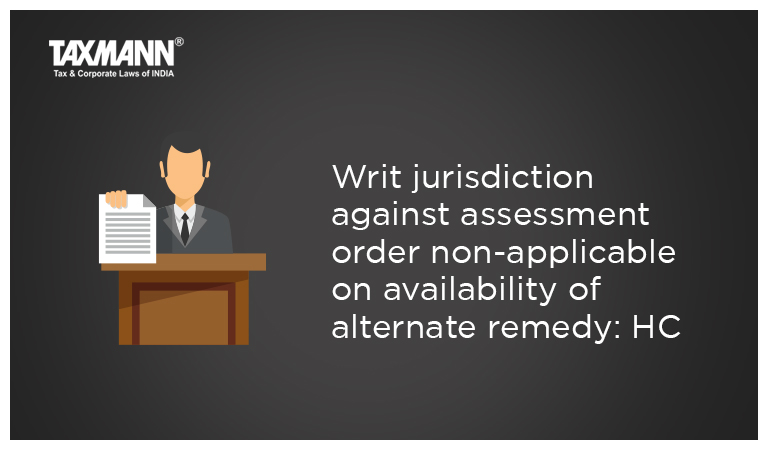Writ jurisdiction against assessment order non-applicable on availability of alternate remedy: HC
- Blog|News|GST & Customs|
- 2 Min Read
- By Taxmann
- |
- Last Updated on 5 July, 2022

Case Details: Pride Constructions v. Deputy/Assistant Commissioner of STGST, Nellore - [2022] 139 taxmann.com 465 (Andhra Pradesh)
Judiciary and Counsel Details
-
- Ahsanuddin Amanullah and Ms. B.S. Bhanumathi, JJ.
- S. Suribabu, Adv. for the Petitioner.
- Y.N. Vivekananda, Government Pleader for the Respondent.
Facts of the Case
The petitioner entered into an agreement with the land owner to develop 25 flats and in consideration thereof, he would receive 11 flats whereas the land owner would get 14 flats. The assessment order was passed against the petitioner raising demand of GST on services rendered under the development agreement.
The petitioner filed writ petition and challenged the impugned assessment order of levying GST on Transferable Development Rights in respect of joint development of land and construction of flats on it on the ground that all the objections raised by the petitioner were rejected.
High Court Held
The Honorable High Court observed that the Assessing Authority had given vivid reasons as to why the objections of the assessee were rejected. As per the decision of Hon’ble Supreme Court in Asstt. CST v. Commercial Steel Ltd. [2021] 130 taxmann.com 180/88 GST 799, a party can move before High Court, when alternative remedy is available if:
-
- a breach of fundamental rights;
- a violation of the principles of natural justice;
- an excess of jurisdiction; or
- a challenge to the vires of the statute or delegated legislation.
However, in the instant case, the petitioner could not satisfy any of the circumstances enumerated above and there was an effective alternative remedy before the appellate authority. Therefore, the Court held that the matter would not require any interference and petition was liable to be dismissed.
List of Cases Referred to
-
- Asstt. CST v. Commercial Steel Ltd. [2021] 130 taxmann.com 180/88 GST 799 (SC) (para 5).
Disclaimer: The content/information published on the website is only for general information of the user and shall not be construed as legal advice. While the Taxmann has exercised reasonable efforts to ensure the veracity of information/content published, Taxmann shall be under no liability in any manner whatsoever for incorrect information, if any.

Taxmann Publications has a dedicated in-house Research & Editorial Team. This team consists of a team of Chartered Accountants, Company Secretaries, and Lawyers. This team works under the guidance and supervision of editor-in-chief Mr Rakesh Bhargava.
The Research and Editorial Team is responsible for developing reliable and accurate content for the readers. The team follows the six-sigma approach to achieve the benchmark of zero error in its publications and research platforms. The team ensures that the following publication guidelines are thoroughly followed while developing the content:
- The statutory material is obtained only from the authorized and reliable sources
- All the latest developments in the judicial and legislative fields are covered
- Prepare the analytical write-ups on current, controversial, and important issues to help the readers to understand the concept and its implications
- Every content published by Taxmann is complete, accurate and lucid
- All evidence-based statements are supported with proper reference to Section, Circular No., Notification No. or citations
- The golden rules of grammar, style and consistency are thoroughly followed
- Font and size that’s easy to read and remain consistent across all imprint and digital publications are applied



 CA | CS | CMA
CA | CS | CMA
